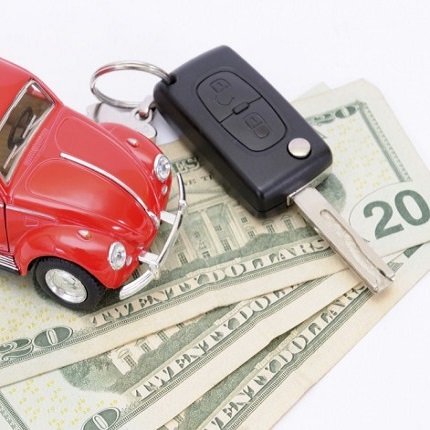Should You Buy, Finance, Or Lease Your New Car?
 Whether you’re finally in the market for your dream car, or your current ride is on its last legs and you have no choice but to seek out a new set of wheels, shopping for a car can be daunting, and even downright confusing.
Whether you’re finally in the market for your dream car, or your current ride is on its last legs and you have no choice but to seek out a new set of wheels, shopping for a car can be daunting, and even downright confusing.
Should you buy a new car, or lease? And if you need financing, should you seek a loan from the dealership, from your bank, or elsewhere? And in all cases, what does a good deal really look like—and how can you tell if you’ve found one?
Quoted asked car dealers, loan officers, automotive experts, and those in the business of negotiating for their tips and tricks to help you along the way. Here’s their best advice.
First Things First: How To Tell If You Should Buy, Finance Or Lease
Jordan Perch from DMV.org told Quoted that, “Determining whether to buy or lease a new car can be a pretty difficult task. Basically, it all depends on a person’s needs, whether they can afford to pay cash or not, and how long they intend to keep the car.”When You Should BuyIf you’ve got the cash on hand to buy a car outright, Perch says this is the best option: you avoid interest rates and finance fees which can add substantial cost, and you can sell the car whenever you choose, thereby recovering some of your cost.Even if you’ve got the cash to pay up front, you might want to take finance and interest rates into account. Mike Rabkin, owner of vehicle negotiating firm From Car to Finish told Quoted that if the finance rate on your new car is higher than the interest rate you’d earn leaving your money invested, paying the whole bill up front is the prudent choice. Otherwise, you might consider financing.
If you’ve got the cash to pay outright for your car, do so.
When You Should Finance
Financing is the most common payment option. Charles Cannon, a BMW dealer in Houston, TX, told Quoted that 90 percent of customers finance through the dealership, while the remaining 10 percent use a personal bank or credit union or pay cash. Perch seconded the sentiment and explained why financing works for most customers: “It involves low short-term costs, because you just have to make a down payment of about 20 percent of the car’s purchase price, and relatively affordable monthly payments over the course of a few years. But, the long-term costs are higher, since you end up paying more than the car’s sticker price because of the interest rates.”When deciding whether to buy a car or lease it, consider how you plan to use the vehicle. Rabkin told us that drivers who tend to put excess wear and tear on their vehicles might want to buy a car rather than lease it. Dealers will charge for any wear or damage to a leased vehicle at the end of the leasing term, and the fees can be hefty.
When You Should Lease
If you only plan to keep your car for three to four years, Perch suggests leasing. Perch says that way, “You get to drive a new car every few years, and keep your savings intact.” Other leasing advantages Perch shared: lower down payment and lower monthly payments compared to financing a car, along with lower repair costs, because a leased car is under warranty, which covers almost all repairs. However, at the end of the three to four years, you can’t sell the car, so you’ve spent thousands of dollars with nothing to show—a feeling all of us home and apartment renters know all too well.Matt DeLorenzo, managing editor for Kelley Blue Book’s KBB.com, told us that leasing only makes financial sense for drivers who travel fewer than 12,000 miles a year. Otherwise, he says, it’s better to buy, whether you finance or pay up front.
When you lease, you get to drive a new car every few years.
Paul Matamoros, Vice President of Indirect Lending at Texas Trust Credit Union says, “We see three type of consumers that can often benefit from leasing versus purchasing. The first group are people that prefer to always be under a manufacturer’s warranty. These consumers can benefit from 36 to 48 month leases. People that tend to trade in their vehicle before their loan is paid in full are also leasing candidates. The third group are those that prefer the newest models and technology and upgrade their vehicles every few years so they can drive the latest models.”Mike McWethy, COO of First Service Credit Union in Houston, TX told us, “Mileage is at the heart of leasing, so that is a key consideration. If you exceed the mileage terms of a leased vehicle you may end up paying more for the vehicle than if you paid interest to purchase the car.”And, if you find yourself in a leasing contract and you want out, check out Swapalease. You can find a different car to lease, or simply find someone to take over your current lease.
Sales Tactics
Car sales people tend to have a reputation when it comes to their trustworthiness (particularly used car sales people), and while Quoted believes these reputations are largely exaggerated, we did wonder what kinds of tactics dealers might use that we as customers might want to look out for.
Kelly Blue Book
Cars.com
AutoTrader.com
NADA
TrueCar
If the thought of haggling makes you want to hide, you aren’t alone. Enter car negotiating firms like From Car to Finish and G2 Auto Advisors. For a fee, these companies and others like them will handle all the logistics of purchasing, leasing, or even selling a car either privately or from a dealership. Gerard Raho, owner of G2 Auto Advisors, says he started his company because car buying and leasing can be quite confusing and people who aren’t familiar with the ins and outs tend to waste a lot of time and over-pay.
So there you have it: car buying in a nutshell.
Source: The Zebra





